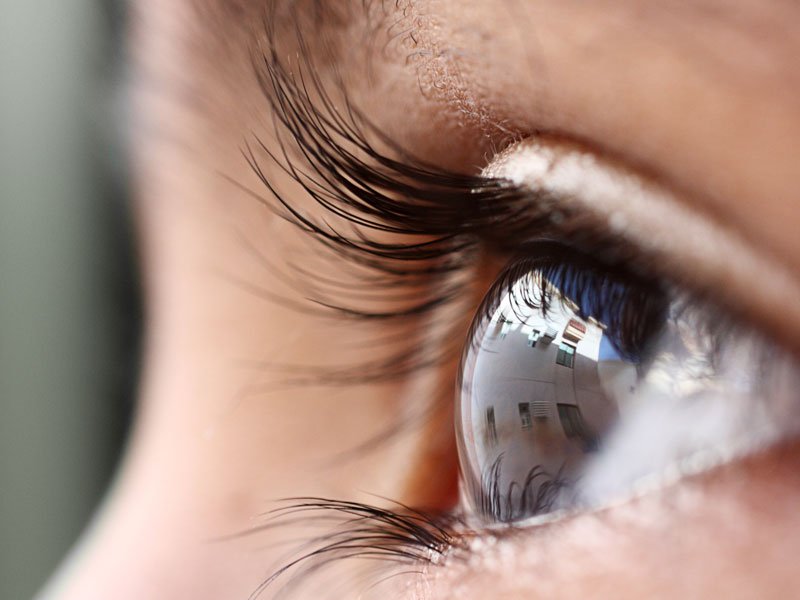
Are You Taking Care of Your Eye Health? August is National Eye Exam Month.
Although it’s important to focus on your eye health year-round, in August we put an even greater emphasis on taking care of your eyes during National Eye Exam Month. While most people put vision on the top of their list as the most important sense, only half get an annual eye exam. Many people avoid seeing an eye doctor because they haven’t noticed any recent vision changes or feel the need for glasses or contacts. However, eye care is so much more than how you see and it looks different for every stage of life.
The Eye’s Lifetime of Experiences
Your eyes experience everything from ultraviolet ray exposure to dealing with the elements of weather, your workplace, and your lifestyle over the course of a lifetime. The eye is one of the most complex organs in the body, working with your brain and several moving parts to manage your entire visual system. Did you know the human eye processes more than ten million bits of information per second? Each moving part has a specific role to produce the images we see. These are just four of the eye’s many functions!
- Keeps foreign objects away like dust and dirt (Cornea)
- Protects from damage (Sclera)
- Controls the amount of light that enters (Iris)
- Deposits nutrients to the lens and cornea (Eye Chambers)
The Power of the Eye Exam
Eye exams can be the key to detecting and diagnosing eye diseases such as glaucoma and diabetic retinopathy. Early detection can prevent permanent vision loss. Not only can eye diseases be detected by an eye exam, but other health issues such as high cholesterol and high blood pressure are often times first diagnosed by an eye doctor. They are detected through a comprehensive eye exam that gives a more in-depth picture of eye health through additional testing.
Our doctors recommend that the first eye exam occurs at six months of age. As toddlers grow and develop into school-age children, their vision problems can sometimes be linked to learning problems and issues thriving in the classroom. Eye exams can detect these vision problems and determine if your child has a correctable problem with glasses, or if there is a problem that needs more special attention.
As you age, the risk of developing cataracts and eye diseases like macular degeneration increases. Your prescription might also change, which is detected through an eye exam. Our eye doctors have even detected cancerous, life-threatening tumors through comprehensive eye exams.
Regular eye exams can have a massive impact on the quality of your vision and eye health. So let’s celebrate National Eye Exam Month!
No Comments